Captivating Bichon Frise: Your Lively Companion Awaits!
Introduction
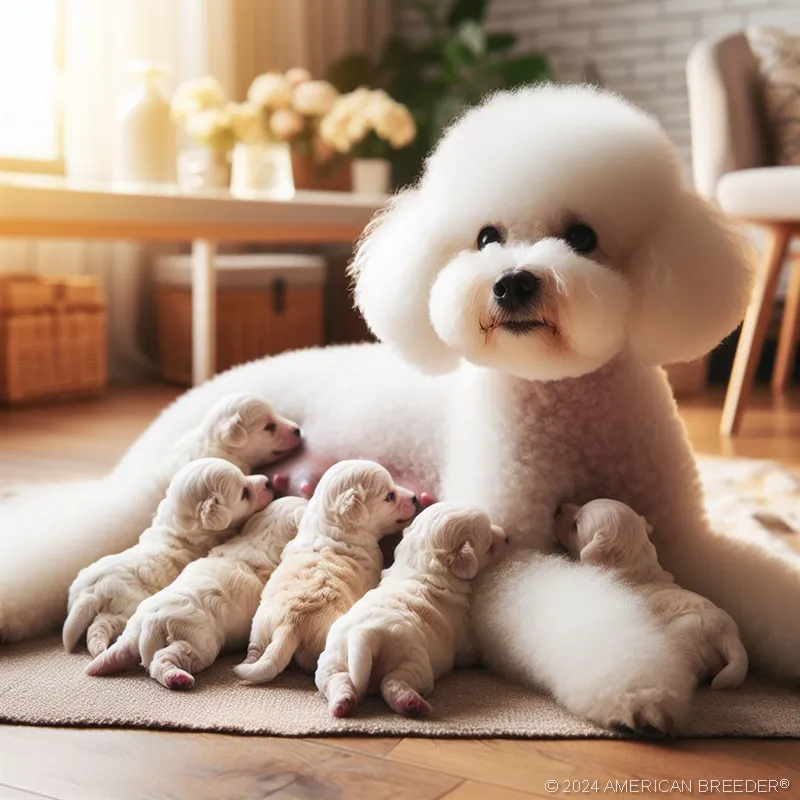 The Bichon Frise Dog, a delightful and enchanting breed, captivates the hearts of dog lovers worldwide with its charming looks and affectionate personality. This small and fluffy companion is a true joy to be around and makes for an excellent addition to any family or individual looking for a loyal and loving canine companion.
The Bichon Frise Dog, a delightful and enchanting breed, captivates the hearts of dog lovers worldwide with its charming looks and affectionate personality. This small and fluffy companion is a true joy to be around and makes for an excellent addition to any family or individual looking for a loyal and loving canine companion.
Before considering bringing a Bichon Frise into your home, there are several essential factors to contemplate. The breed's exercise needs, grooming requirements, and potential health issues should be carefully evaluated. Bichon Frises thrive on human companionship and can develop behavioral problems if left alone for extended periods. Prospective owners should be prepared to provide regular socialization, training, and mental stimulation to ensure their pet's well-being and happiness.
Now, let's explore some fascinating facts about the Bichon Frise. Known by various names in different regions, such as the "Tenerife Dog" or "Bichon Tenerife," this breed has a rich history that dates back to ancient times. Sailors and merchants admired their friendly nature, making them excellent shipmates during voyages. Their journey continued through European courts and aristocratic households, where they found favor as beloved lapdogs and loyal companions.
Breed Background and History
The Bichon Frise's history is steeped in cultural significance and historical relevance. During the Renaissance period, this breed gained immense popularity among Italian and Spanish royalty, artists, and nobility. Renowned artists such as Francisco de Goya and Diego Velazquez immortalized the Bichon Frise in their paintings, solidifying its place in history.
Originally bred for companionship, the Bichon Frise excelled in its role as a faithful friend, providing comfort and joy to its owners. Their sociable and entertaining nature also made them popular performers in circuses and street shows, where they delighted audiences with their tricks and charisma.
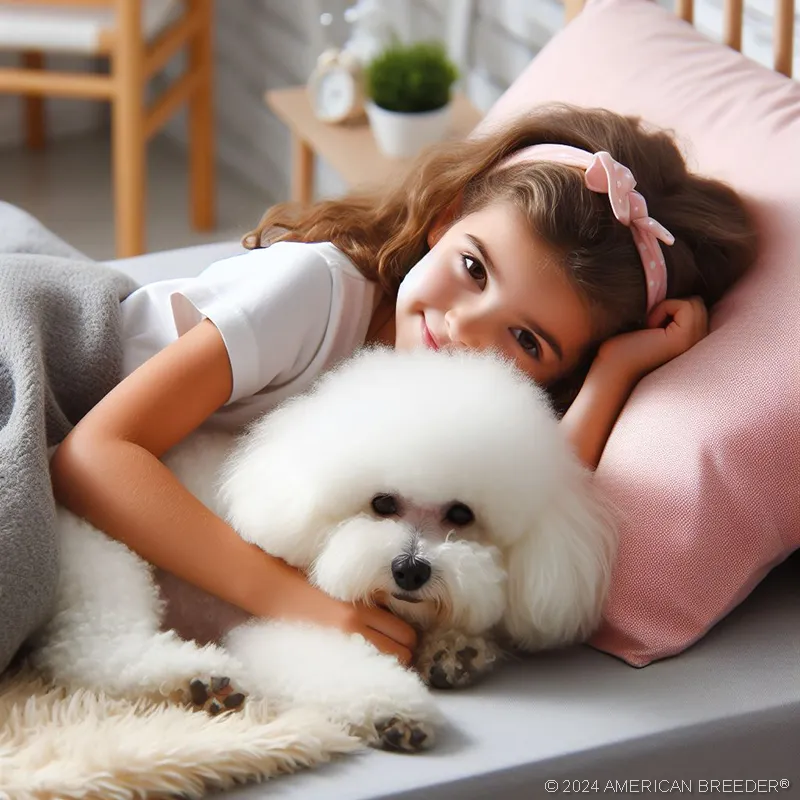 Today, the Bichon Frise is recognized by various kennel clubs worldwide. Organizations like the American Kennel Club (AKC), the United Kennel Club (UKC), and the Fédération Cynologique Internationale (FCI) classify and register this breed. In the AKC, the Bichon Frise belongs to the Non-Sporting Group, a diverse category encompassing breeds with unique characteristics.
Today, the Bichon Frise is recognized by various kennel clubs worldwide. Organizations like the American Kennel Club (AKC), the United Kennel Club (UKC), and the Fédération Cynologique Internationale (FCI) classify and register this breed. In the AKC, the Bichon Frise belongs to the Non-Sporting Group, a diverse category encompassing breeds with unique characteristics.
Appearance
The Bichon Frise is a small and sturdy breed with a distinctive appearance that sets it apart from other dogs. On average, these dogs weigh between 12 to 18 pounds and stand 9.5 to 11.5 inches tall at the shoulder. Despite their small size, they possess a fair amount of energy and enthusiasm for playtime and short walks, making them a delightful companion for active families or individuals.
One of the most striking features of the Bichon Frise is its luxurious coat, which is both hypoallergenic and non-shedding. The double coat consists of a dense, soft undercoat and a curly, coarse outer coat that forms tight curls. The breed's coat is predominantly white, though some individuals may display cream or apricot markings around the ears or on the coat.
The Bichon Frise's endearing face is characterized by its round, dark eyes that exude warmth and affection. With a black nose complementing their white coat, they often resemble adorable teddy bears, adding to their charm and appeal.
On average, Bichon Frises give birth to small litters, typically ranging from 3 to 5 puppies. Due to their small size, responsible breeding practices are essential to ensure the health and well-being of both the mother and her offspring.
Temperament and Personality
The Bichon Frise's temperament is nothing short of delightful, making it a popular choice among families and individuals seeking a lovable and friendly companion. Known for their affectionate and gentle nature, Bichon Frises thrive on human interaction and form strong bonds with their owners.
 These dogs are generally sociable and get along well with children, making them excellent family pets. Their friendly demeanor extends to strangers, and they often greet newcomers with a wagging tail and a joyful disposition. This amiable temperament also makes them suitable for homes with other pets, as they tend to be tolerant and accepting of their furry companions.
These dogs are generally sociable and get along well with children, making them excellent family pets. Their friendly demeanor extends to strangers, and they often greet newcomers with a wagging tail and a joyful disposition. This amiable temperament also makes them suitable for homes with other pets, as they tend to be tolerant and accepting of their furry companions.
With their high energy levels, Bichon Frises enjoy playtime and interactive activities with their owners. Regular exercise and mental stimulation are vital to keep them happy and prevent boredom-related behavioral issues.
Trainability and Intelligence
The Bichon Frise's intelligence and eagerness to please their owners make them relatively easy to train. Their sociable nature means they respond well to positive reinforcement techniques, such as praise and treats. Consistent and patient training is key, as they may display a stubborn streak at times.
Basic obedience training is essential for any dog, and the Bichon Frise is no exception. Teaching commands such as sit, stay, and come helps establish boundaries and ensures a well-behaved companion. Advanced training, such as agility or tricks, can be both mentally and physically stimulating for the breed.
Practical Considerations
Caring for a Bichon Frise involves meeting various practical needs to ensure their well-being and happiness. Providing suitable sleeping quarters based on their size and comfort is essential. Regular veterinary check-ups and vaccinations are crucial to maintaining their health, and owners should be prepared for the associated costs.
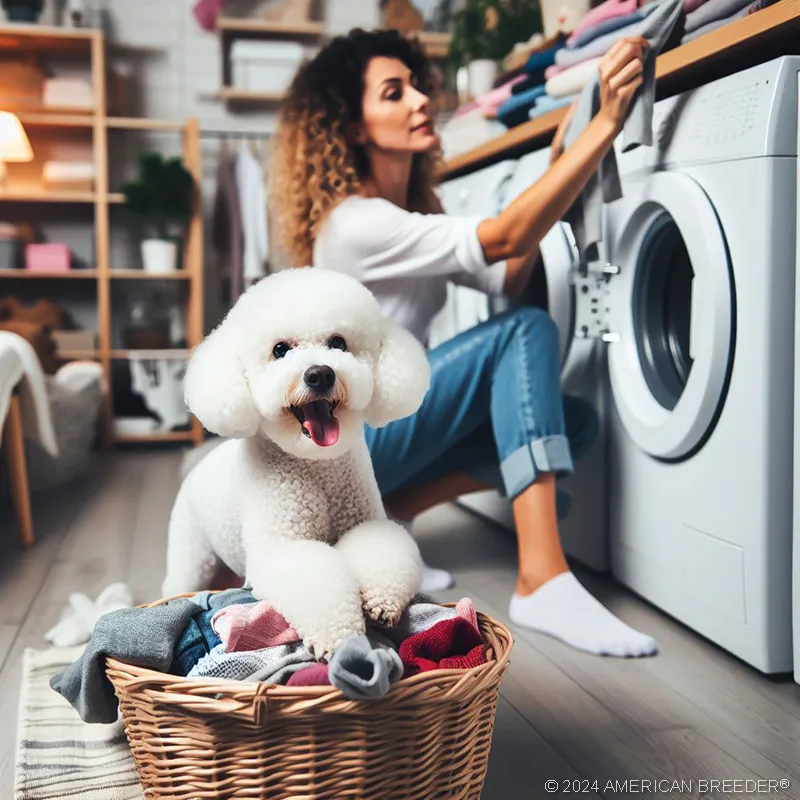 Grooming is a significant aspect of Bichon Frise care due to their hypoallergenic and non-shedding coat. Regular brushing and occasional trimming are necessary to prevent matting and tangles. Keeping their ears clean and nails trimmed also contributes to their overall well-being.
Grooming is a significant aspect of Bichon Frise care due to their hypoallergenic and non-shedding coat. Regular brushing and occasional trimming are necessary to prevent matting and tangles. Keeping their ears clean and nails trimmed also contributes to their overall well-being.
Sufficient daily exercise is essential to prevent behavioral issues and maintain their physical health. Bichon Frises love interactive play and short walks, making it easy to meet their exercise requirements.
Health and Care
While generally healthy, the Bichon Frise is prone to certain breed-specific health issues. These may include allergies, dental problems, and patellar luxation. Regular health check-ups and early detection of any potential health concerns are crucial for a long and healthy life.
Maintaining a balanced and nutritious diet is essential for the Bichon Frise's well-being. Owners should follow a feeding schedule and provide portion sizes appropriate for their size and activity level. High-quality dog food, supplemented with occasional treats, ensures their nutritional needs are met.
Socialization and Compatibility
Bichon Frises are social dogs that thrive on companionship, making them well-suited for families and individuals seeking a loyal and loving companion. Early socialization is essential to ensure they grow up to be well-adjusted and confident dogs.
Interaction with children, other pets, and strangers should be encouraged from a young age to foster positive relationships. Proper socialization helps reduce anxiety and fear in new situations, ensuring the Bichon Frise remains friendly and approachable.
Living Arrangements and Environment
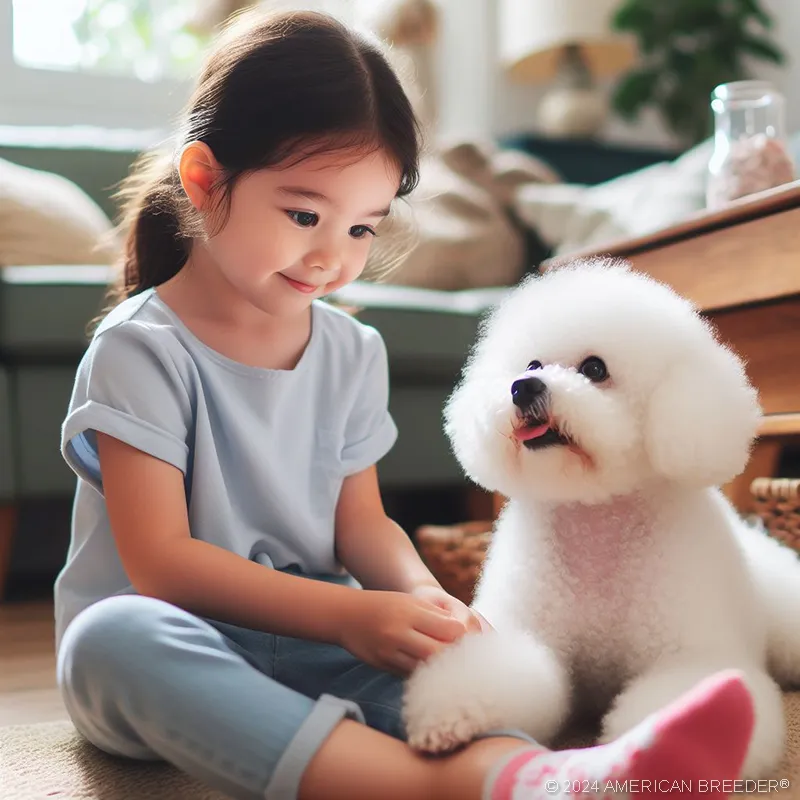 The Bichon Frise is adaptable and well-suited for various living arrangements. Whether in a spacious home with a yard or an apartment, they can thrive with the right care and exercise. Their small size makes them suitable for urban living, but access to outdoor space for play and exercise is beneficial. Bichon Frises are happiest when they are part of the family and included in daily activities, so they can adapt to various living situations as long as they receive the love and attention they crave.
The Bichon Frise is adaptable and well-suited for various living arrangements. Whether in a spacious home with a yard or an apartment, they can thrive with the right care and exercise. Their small size makes them suitable for urban living, but access to outdoor space for play and exercise is beneficial. Bichon Frises are happiest when they are part of the family and included in daily activities, so they can adapt to various living situations as long as they receive the love and attention they crave.
Training and Obedience
Training a Bichon Frise is both rewarding and enjoyable due to their intelligence and eagerness to learn. Positive reinforcement training, using treats, praise, and rewards, is highly effective with this breed. Harsh or punitive methods are not recommended as they can lead to fear and anxiety in the dog.
Basic obedience training should begin early in a Bichon Frise's life to establish good behavior and manners. Consistency and patience are key during the training process, and short, fun sessions are more effective than long, tedious ones.
Bichon Frises are known to be sensitive and may respond negatively to harsh words or raised voices. Instead, they thrive on praise and positive attention, making training a joyful experience for both the dog and the owner.
Exercise and Activity
While the Bichon Frise may be a small breed, they have a surprising amount of energy. Daily exercise is essential to keep them physically and mentally stimulated, preventing boredom and potential behavioral problems.
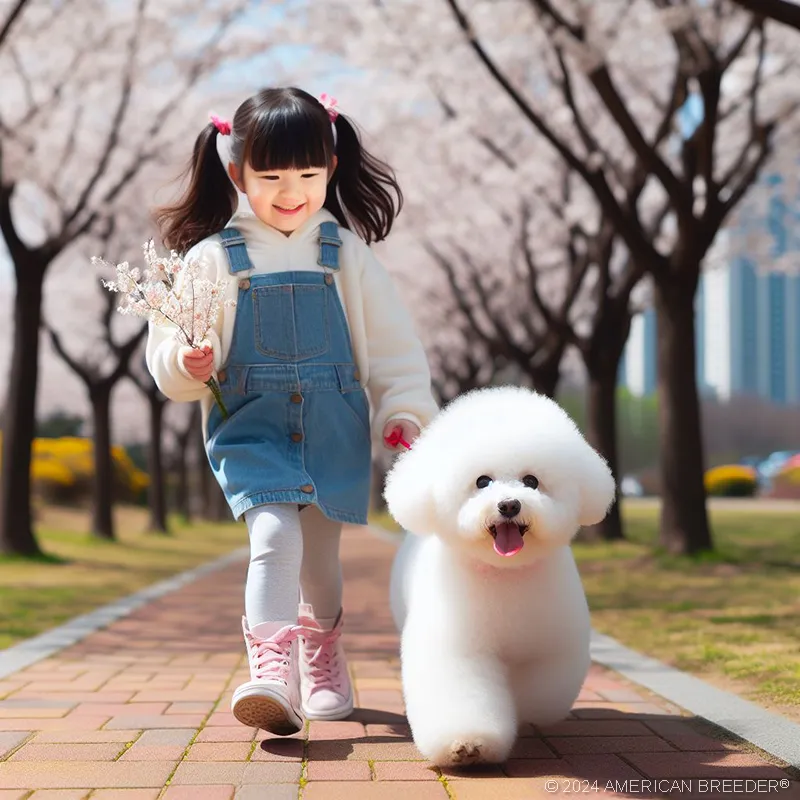 Short walks, playtime in the backyard, and interactive games are excellent ways to meet their exercise needs. Additionally, Bichon Frises enjoy mental stimulation, so puzzle toys, treat-dispensing toys, and obedience training sessions can keep their minds engaged.
Short walks, playtime in the backyard, and interactive games are excellent ways to meet their exercise needs. Additionally, Bichon Frises enjoy mental stimulation, so puzzle toys, treat-dispensing toys, and obedience training sessions can keep their minds engaged.
Financial Planning
Before welcoming a Bichon Frise into your home, it's crucial to consider the financial responsibilities that come with pet ownership. Apart from the initial cost of purchasing or adopting a Bichon Frise, owners should budget for ongoing expenses, including food, grooming, veterinary care, and pet insurance.
Regular veterinary check-ups, vaccinations, and preventive medications are necessary to keep the Bichon Frise in good health and prevent potential health issues. Grooming costs may vary depending on whether owners choose professional grooming services or opt for at-home grooming.
Overall Summary
In conclusion, the Bichon Frise is a delightful and affectionate breed that brings joy and love into the lives of their owners. Their friendly and sociable nature makes them excellent family pets, and their intelligence and eagerness to please make them relatively easy to train. Responsible ownership, including regular exercise, grooming, and veterinary care, ensures a happy and healthy life for these charming canine companions. With the right care and attention, the Bichon Frise will undoubtedly become a cherished member of the family for many years to come.
Bichon Frise Dog Quick Reference Guide
Breed Background: Origin: Mediterranean region | Breed Purpose: Companion dog | AKC Class: Non-Sporting Group | Year Recognized by AKC: 1972
 Appearance: Size: Small | Weight: 12-18 pounds | Coat Type: Hypoallergenic, Double coat | Colors & Patterns: White | Distinctive Features: Plush, curly coat; Round, dark eyes; Tail carried over the back
Appearance: Size: Small | Weight: 12-18 pounds | Coat Type: Hypoallergenic, Double coat | Colors & Patterns: White | Distinctive Features: Plush, curly coat; Round, dark eyes; Tail carried over the back
Temperament: Energy Level: 3 | Friendliness to Pets: 5 | Friendliness to Strangers: 4 | Trainability: 4 | Playfulness: 5 | Frequent Barker: 3 | Chase Instincts: 2 | Sense of Smell: 3 | Drive to Hunt: 1
Health & Care: Health Issues: Luxating patella, allergies, dental problems | Lifespan: 12-15 years | Grooming Difficulty: 3 | Exercise Needs: Moderate exercise, daily walks
Socialization: Interaction with Children: Gentle and playful | Interaction with Pets: Generally gets along well | Interaction with Strangers: Friendly, but may be reserved | Ease of Training: Intelligent and trainable
Suitable Living Arrangements: Apartment: Yes | House: Yes | Rural Area: Yes | Yard Size Requirements: Small yard or access to outdoor space
Training & Obedience: Trainability: 3 (Moderate) | Intelligence: 4 (High) | Obedience: 4 (High) | Problem-Solving: 3 (Limited) | Easily Stimulated: 4 (High) | Focus Level: 3 (Moderate) | Easily Distracted: 2 (Low)
Financial Planning: Typical Price Range: $800 - $3,000 | Initial Expenses: Vaccinations, grooming tools | Ongoing Annual Expenses: Food, grooming, medical check-ups
Breeding: Reproductive Maturity: 6-8 months | Litter Frequency: 1-2 litters per year | Litter Size: 3-5 puppies | Stud Cost: Varies based on quality | Breeding Challenges: Small litter size, potential birthing difficulties
Did You Enjoy this Article? Share it and Help Us Spread the Word!
If you found this article helpful, we'd appreciate it if you could share it with your friends or link to it from your website, blog, or group! You can also use the convenient social share tabs on the left side of the screen to instantly share this page to your social media feed. For more ways to support and promote the American Breeder Community, visit our Share & Promote Together page for social media posts and memes you can copy and share. Your support means the world to us!
Disclaimer: The information provided in this article is for general informational purposes only and does not constitute legal, medical, financial, or professional advice. While we strive for accuracy, we make no representations or warranties regarding the completeness, accuracy, reliability, or suitability of the information. Please consult with a professional before making decisions based on the content provided. American Breeder Inc. assumes no responsibility for any errors or omissions or for the results obtained from the use of this information.
